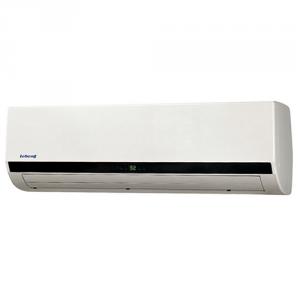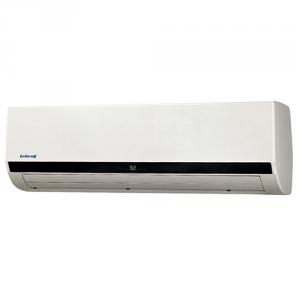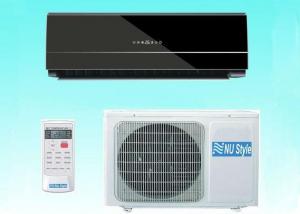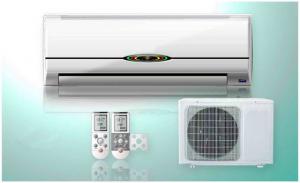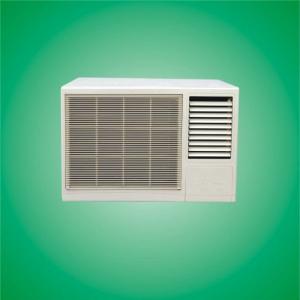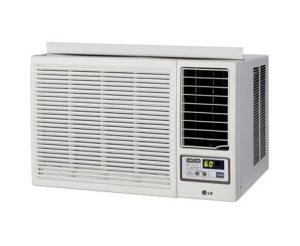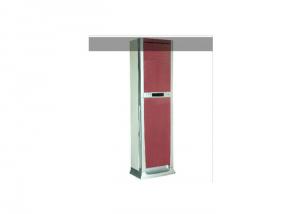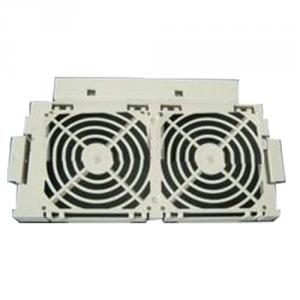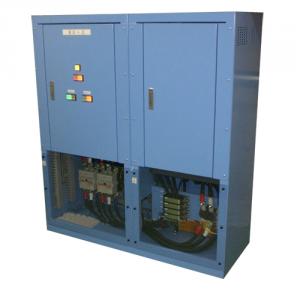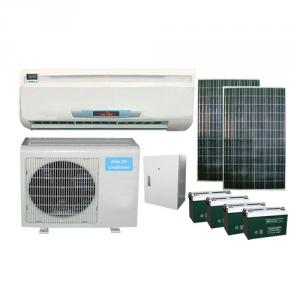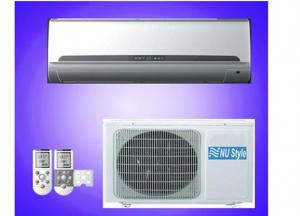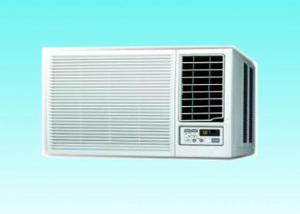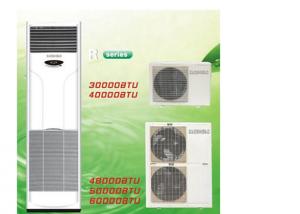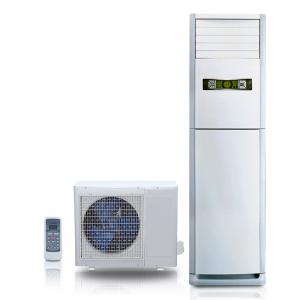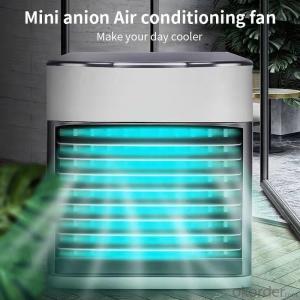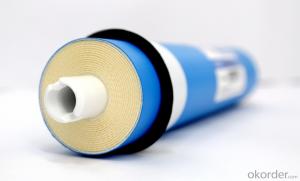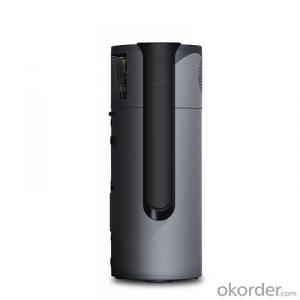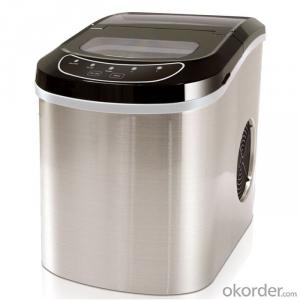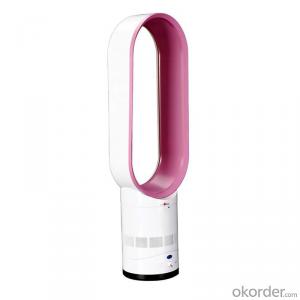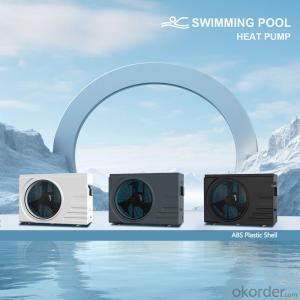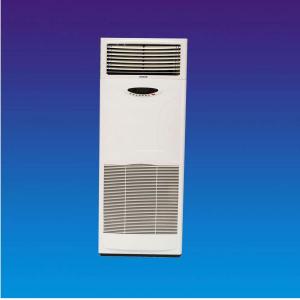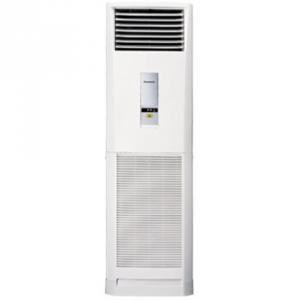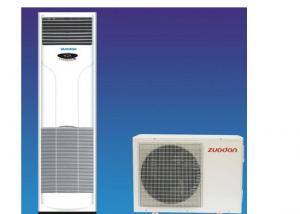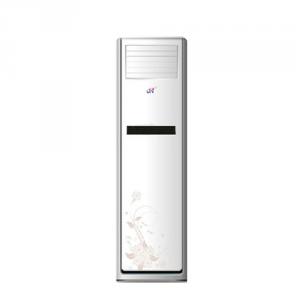36000BTU Split Wall Mounted Type Air Conditioner
- Loading Port:
- Foshan / Guangzhou / Shenzhen
- Payment Terms:
- L/C,T/T
- Min Order Qty:
- 50 Sets set
- Supply Capability:
- 200 Sets per Day set/month
OKorder Service Pledge
OKorder Financial Service
You Might Also Like
Cooling & Heating or Cooling Only;
Cooling Capacity: 2500W-3500W
Heating Capacity: 2500W-3500W
Air Flow(m3/hour): 400-850
Noise Indoor Unit: 40-48DBA
Noise Outdoor Unit: 50-56DBA
Weight Indoor Unit: 28-40KG
Weight Outdoor Unit: 37-58
Energy Saving, Quiet Operation
Sleeping Mode, Remote Control
Carton Package or customer’s special requirement
Carton Standard Package
Quolity Guarantee: we provide 2 years warranty of products and shipment 1% spare parts.
FAQ
Q1:Why is it important to use home air conditioner filters?
A:Without them you can clog up vital parts of the heating or cooling components that can be difficult to clean out and can cause severe damage that will be much more expensive to repair than the inconvenience of replacing a filter once a month.
Q2:What is VRF Air Conditioning System?
A:VRF air-conditioning systems owe their growing popularity to their ability to meet a wide range of requirements.
- Q:Household air-conditioning ventilation principle is what
- Ha ha air conditioning has fresh air, but has little effect. Two copper pipe is circulation of the refrigerant, high and low pressure tube all the way. Household family air-condition we only see out of the wind the place, the return air is at the top of the machine, it is a into a can achieve cycle, therefore is feasible. The central air conditioning is more obvious.
- Q:What is the difference between installing central air conditioning and single air conditioning?
- Family room number (1-4 units installed within the family), the number of live or less indoor decoration (no smallpox) commonly decorate, the pursuit of the early users of low investment advice consider fission machine and ark installation layout; And room number or decorate luxurious, higher requirements for comfort of users consider installation of household central air conditioning, residential room number, the more the number of live, the more use of household central air conditioning, the more can reflect the product price
- Q:Can an air conditioner help reduce the risk of heat-related illnesses in the elderly?
- Yes, an air conditioner can help reduce the risk of heat-related illnesses in the elderly. As individuals age, their bodies become less efficient at regulating temperature, making them more vulnerable to extreme heat. Heat-related illnesses such as heat exhaustion and heat stroke can have severe consequences for the elderly, including dehydration, organ damage, and even death. Air conditioning provides a controlled and cool environment that can help prevent heat-related illnesses. It helps to lower and maintain a comfortable indoor temperature, reducing the risk of overheating. With the ability to control humidity levels, air conditioners also prevent excessive moisture accumulation, which can lead to the growth of mold and mildew that can negatively impact respiratory health. Furthermore, air conditioning improves air quality by filtering out pollutants, allergens, and contaminants that can exacerbate respiratory conditions commonly seen in the elderly. This cleaner air promotes better respiratory function and reduces the risk of respiratory infections, which can be particularly dangerous in hot weather. In addition to the physical benefits, air conditioning also provides psychological relief and comfort for the elderly. Extreme heat can cause anxiety, sleep disturbances, and overall discomfort, which can further contribute to health issues. By keeping the indoor environment cool and pleasant, air conditioning can help alleviate stress and promote overall well-being. It is important to note that while air conditioning can significantly reduce the risk of heat-related illnesses in the elderly, it should not be the sole preventive measure. Other precautions such as staying hydrated, wearing appropriate clothing, and avoiding direct sunlight during peak heat hours should also be followed to ensure optimal safety.
- Q:Can an air conditioner be used to cool multiple rooms or a whole house?
- Yes, an air conditioner can be used to cool multiple rooms or even a whole house. There are two main types of air conditioning systems that can achieve this: central air conditioning and ductless mini-split systems. Central air conditioning is a system that uses ductwork to distribute cool air throughout the entire house. It consists of a central unit that cools the air and then sends it through the ducts to each room. This type of system is typically installed during the construction of the house or as a retrofit. It allows for consistent cooling in every room and provides the convenience of controlling the temperature from a central thermostat. Ductless mini-split systems, on the other hand, are an excellent option for cooling multiple rooms or specific zones within a house. These systems consist of an outdoor unit and one or more indoor units, which are mounted on the wall or ceiling in each room. Each indoor unit operates independently, allowing you to control the temperature individually for each room or zone. Ductless mini-split systems are versatile and can be a cost-effective solution for homes without existing ductwork. In both cases, it's important to consider the size and capacity of the air conditioner to ensure it can adequately cool the entire space. Consulting with a professional HVAC technician is recommended to determine the best system for your specific needs and to ensure proper installation.
- Q:How do you clean the fan blades on an air conditioner?
- To clean the fan blades on an air conditioner, first, ensure that the unit is turned off and unplugged for safety. Next, locate the fan blades, which are usually found behind a protective grille or cover. Remove the grille or cover by unscrewing or unlatching it, following the manufacturer's instructions. Once the blades are exposed, use a soft brush or cloth to gently remove any dust or debris that has accumulated on them. For stubborn dirt or grime, a mixture of warm water and mild detergent can be used to lightly dampen the cloth or brush. Be careful not to wet any electrical components. After cleaning the blades, it is important to dry them thoroughly to prevent any moisture from causing damage. Ensure that the blades are completely dry before reassembling the protective grille or cover. Additionally, it is recommended to clean the fan blades regularly to maintain the efficiency of the air conditioner. A general cleaning schedule could be every few months or as needed, depending on the environment and usage of the unit.
- Q:How many degrees electric air conditioning in a day
- Your air conditioning much high-power? How long will open every day. Calculate came out. Electricity power x = time Power unit is the KWH, the unit of time is hours. Once power is 1 kw.
- Q:What is the difference between Marine air conditioning and home air conditioning?
- Main difference in heat dissipation, car and home air conditioning by air, Marine air conditioning by water. As long as there is enough to install your ship and heat dissipation space, Ann can be what kind of air conditioning degree, may be only the difference between the durability and price.
- Q:How do you check the fan motor on an air conditioner?
- To check the fan motor on an air conditioner, you can follow these steps: 1. Turn off the power: Before performing any inspection or maintenance, it is crucial to switch off the power to the air conditioner. This ensures your safety during the process. 2. Locate the fan motor: The fan motor is typically located in the outdoor unit of the air conditioner. It is usually housed within a metal casing and can be easily identified by the presence of a fan blade attached to it. 3. Inspect the motor visually: Start by visually inspecting the fan motor. Look for any signs of physical damage, such as loose or disconnected wires, bent or broken fan blades, or any other visible issues. Ensure that the area around the motor is clean and free from debris that might hinder its operation. 4. Check the fan blades: Gently spin the fan blades with your hand to see if they rotate freely. If there is any resistance or if the blades do not move at all, it could indicate a problem with the motor. 5. Test the motor's electrical continuity: Using a multimeter set to the resistance or continuity mode, check the electrical continuity of the fan motor. Disconnect the power wires from the motor and place the multimeter probes on the motor's terminals. If there is no continuity or a high resistance reading, it suggests a faulty motor that needs to be replaced. 6. Listen for abnormal sounds: While the air conditioner is running, listen for any unusual sounds coming from the fan motor. Grinding, rattling, or squealing noises could indicate a motor problem and would require further inspection or professional assistance. 7. Consult a professional if necessary: If you encounter any significant issues during the inspection or if you are unsure about your findings, it is recommended to contact a certified HVAC technician. They have the expertise and tools to diagnose and repair any problems with the fan motor or other components of the air conditioner. Remember, if you are not familiar or comfortable with electrical components or working on air conditioning systems, it is always best to seek professional help to avoid any accidents or further damage to the unit.
- Q:How to get rid of air conditioning odor
- First step, the washing machine outside condenser and cooling fans, don't need to tear open shell, rinse with tap water, be careful not to get the water to the electrical components. The second step, cleaning the machine filter, open the active shell removed, rinse with water. Within the third step, cleaning machine evaporator, open the active shell off screen can see metal finned evaporator, prepare a bottle of special air conditioning cleaner (generally have large supermarkets sell), in the condition of power into the evaporator inside evenly spray cleaner, wait 15 minutes after the start air conditioning, dirt will with condensed water outflow.
- Q:How do I prevent ice buildup on my air conditioner coils?
- To prevent ice buildup on your air conditioner coils, there are a few steps you can take: 1. Regularly clean and maintain your air conditioner: Make sure to clean the filters, evaporator coils, and condenser coils regularly. Dust, dirt, and debris can accumulate on the coils, reducing airflow and causing ice formation. Use a soft brush or a vacuum cleaner to remove any buildup. 2. Ensure proper airflow: Check that all vents and registers are open and unobstructed. Restricted airflow can cause the evaporator coils to become too cold, leading to ice formation. Additionally, ensure that there are no furniture or objects blocking the airflow around the indoor and outdoor units. 3. Check for refrigerant leaks: Low refrigerant levels can cause the evaporator coils to freeze. If you notice ice buildup frequently, it may be a sign of a refrigerant leak. In such cases, it is advisable to call a professional HVAC technician to identify and fix the leak. 4. Maintain a suitable thermostat setting: Adjust your thermostat to a temperature that is not too low. Extremely low temperatures can cause the evaporator coils to freeze. Aim for a comfortable temperature range to prevent ice buildup. 5. Use a programmable thermostat: A programmable thermostat can help regulate the temperature and prevent the system from running excessively, which can lead to ice formation. Set the thermostat to maintain a consistent temperature and avoid drastic temperature fluctuations. 6. Keep the area around the outdoor unit clean: Ensure that the outdoor unit is free from debris, such as leaves, grass, or dirt. Clear any vegetation or other obstructions around the unit to allow proper airflow. 7. Schedule regular maintenance: It is advisable to have your air conditioner inspected and serviced by a professional technician at least once a year. They can identify any potential issues and perform necessary maintenance to keep the coils clean and prevent ice buildup. By following these preventive measures, you can minimize the risk of ice buildup on your air conditioner coils and ensure optimal performance of your cooling system.
1. Manufacturer Overview |
|
|---|---|
| Location | |
| Year Established | |
| Annual Output Value | |
| Main Markets | |
| Company Certifications | |
2. Manufacturer Certificates |
|
|---|---|
| a) Certification Name | |
| Range | |
| Reference | |
| Validity Period | |
3. Manufacturer Capability |
|
|---|---|
| a)Trade Capacity | |
| Nearest Port | |
| Export Percentage | |
| No.of Employees in Trade Department | |
| Language Spoken: | |
| b)Factory Information | |
| Factory Size: | |
| No. of Production Lines | |
| Contract Manufacturing | |
| Product Price Range | |
Send your message to us
36000BTU Split Wall Mounted Type Air Conditioner
- Loading Port:
- Foshan / Guangzhou / Shenzhen
- Payment Terms:
- L/C,T/T
- Min Order Qty:
- 50 Sets set
- Supply Capability:
- 200 Sets per Day set/month
OKorder Service Pledge
OKorder Financial Service
Similar products
New products
Hot products
Hot Searches
Related keywords
